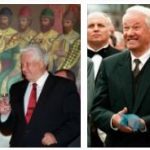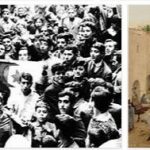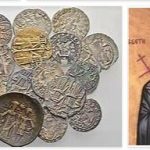The progressive erosion of the consensus around the parties of the ‘grand coalition’ between the Sozialistische Partei Österreichs (SPÖ) and the Österreichische Volkspartei (ÖVP), in government since 1987, characterized the political situation of the 1990s, allowing the rapid rise of the Freiheitliche Partei Österreichs (FPÖ), led by J. Haider, who, skilfully blending populist appeals to direct democracy with a xenophobic ideology, was able to interpret well for electoral purposes the growing detachment of the population from the ruling class, the climate of instability induced by the economic recession of the early 1990s and fears of increasing immigration.
The accession through referendum to the European Union, in June 1994, consecrated by the governing parties as their political victory, actually only temporarily halted the ongoing process. The entrance to the Austria in fact, in the European Union it has imposed economic measures that have contributed to dismantling that ‘economic democracy’, the pivot of political stability in previous decades, while the necessary redefinition of the concept of neutrality within the community institutions and the signing, in 1995, of the program Partnership for Peace (PfP) NATO threatened to result in a significant loss of identity on the part of a country that, like a., in neutrality is an important factor of national cohesion.
The general elections of October 1990 decreed the success of the FPÖ, which went from 17 seats to 33, essentially to the detriment of the ÖVP which lost 17 seats, while the SPÖ obtained 81 seats, reaching the level of the previous elections. The extraordinary rise of Haider’s party encouraged the formation of a SPÖ-ÖVP coalition cabinet under the leadership of the socialist F. Vranitzky, who temporarily overshadowed the reasons for the conflict between the two parties, especially in matters of economic policy. The electoral campaign with an accentuated xenophobic tone conducted by Haider, however, had a partial impact also on the action of the government, which in December 1991passed a restrictive law on immigration, denying (the only country in Europe) political asylum to anyone who requested it without having an identity document. In the same months, the strengthening of neo-Nazi movements prompted the Nationalrat to amend anti-Nazi legislation and make Holocaust denial punishable.
The decline of the ÖVP seemed to come to a halt in the presidential elections of October 1992 when, in the ballot, the popular Th. Klestil won over the socialist R. Streichen. The Klestil presidency marked an immediate improvement in the international relations of the Austria, affected between 1986 and 1991by the presence of K. Waldheim, whose proven knowledge of the atrocities committed by the Nazis while he was a Wehrmacht officer had not prompted him to retire before the regular expiry of the presidential term. Klestil inaugurated an active season of official visits in order to foster good relations with the democracies of Eastern Europe as well as with the EU countries, proposing, at the same time, a de facto revision of his role that pushed the Austria towards a model of a presidential republic.
The entrance to the Austria in the European Union, strongly supported by the SPÖ and the ÖVP and equally radically opposed by the FPÖ, catalyzed the political debate and the attention of public opinion until the popular referendum of 12 June 1994, which gave a substantial majority to the yes party (66, 39 % of voters, with a participation rate of ‘ 81, 2%). The outcome of the referendum, which had been preceded by an alarmist election campaign aimed at demonstrating the alleged devastating effects of the exclusion or inclusion of the Austria in the European Union, it was generally interpreted as an expression of a general consensus on government policy and the beginning of the decline of Haider’s party. Conversely, the general elections of October 1994 seemed to demonstrate the exact opposite: the SPÖ lost 15 deputies, the ÖVP 8, while the FPÖ gained 9 to 42 ; the Greens won 13 seats and the Liberal Forum, which arose in 1993 from a split of the FPÖ and potentially aimed at the popular electorate itself, he entered Parliament with 10seats. In fact, after the euphoria for the referendum, the ruling parties had found themselves paying for those choices determined by the entry of the To. in the European Union and by the progressive adaptation to the Maastricht parameters, choices that had resulted in a neoliberal turn, in a policy of privatization in all sectors and in a drastic downsizing of the welfare state. The positive effects of these measures in terms of reducing the public deficit had not prevented the traditional socialist and popular electorate from expressing their discontent with what had been heralded as an important social achievement, but which at the time had materialized in a political of sacrifices and austerities. For Austria 2009, please check hyperrestaurant.com.
Despite the loss of consensus, the SPÖ and the ÖVP formed a new coalition government under the leadership of F. Vranitzky. The new finance minister, F. Lacina, pursued a policy rigorously based on cuts in public spending, which earned him the opposition of the trade unions and exacerbated the differences already existing within the majority on the timing of implementing the reduction of the deficit. Lacina’s resignation in March 1995, followed by a large ministerial reshuffle, failed to prevent the collapse of the coalition and the recourse to new general elections in December. Surprisingly enough, the electorate confirmed their confidence in the ruling parties which regained a few seats, while the FPÖ lost two. That the ‘movement’in January 1995, to underline the detachment from a conception of politics centered on traditional parties – had nevertheless suffered only a temporary arrest, it was amply demonstrated in the first European elections that were held in October 1996: the controversy against the EU and in particular against the monetary union to Haider yielded the best results ever achieved with the 27, 6 % of the votes, while the SPÖ with 29, 1 % obtained for the first time a result lower than the ÖVP, which is testified on 29, 6%. At the same time, the SPÖ lost the absolute majority (which it had held since the end of the war) in the municipal elections in Vienna, while the Freiheitlichen increased their representation. Under these circumstances, Vranitzky decided to step down in January 1997, leaving the post of chancellor and president of the SPÖ to former finance minister V. Klima. The presidential elections of April 1998 confirmed Klestil in the office, who with 63.5 % of the votes clearly prevailed over G. Knoll, a Social Democratic candidate (13.5 %).
The crisis of the Socialist Party and the settling phase experienced by the Greens transformed Haider’s Freiheitlichen into a potential balance of Austrian politics as a possible partner for the ÖVP. The ideological characteristics, however, made Haider’s movement a somewhat problematic ally: anti-European, xenophobic and liberal to the bitter end, it was able to leverage the electorate of a country that enjoyed relative economic stability, but that felt threatened by ‘ constant influx of immigrants, who – with the opening of the borders with Eastern Europe – had increased to make up 6, 6 % of the population (data referring to 1995). During the nineties, and not without implications, however indirect, with Haider’s aggressive politics, Austria was witnessing the resurgence of xenophobic violence with a Nazi background: after the delivery in 1993 of threatening letters to public figures rights of immigrant communities, in February 1995 a bomb went off in a gypsy camp that resulted in four deaths. The elections of October 1999, which recorded a significant drop in voters, marked a decisive success for Haider’s party (FPÖ); the latter, in fact, won 52 seats. While the popular of the ÖVP remained substantially stable (from 53 to 52seats), the Social Democratic Party (SPÖ) suffered a clear defeat from 71 to 65 seats.
In June 1992 the Austria reached a definitive agreement with Italy on the autonomy of the German-speaking populations of Trentino-Alto Adige. Having obtained a package containing 137 special protection measures and the assurance of being able to settle any disputes before the international court in The Hague, the Austrian government closed the dispute over South Tyrol opened at the UN in 1960. Promoted and supported by the SPÖ and the ÖVP and frowned upon by the FPÖ, the autonomy agreement guaranteed, in the opinion of the then Vice-Chancellor E. Busek, the widest possible rights to a minority within a sovereign state.









